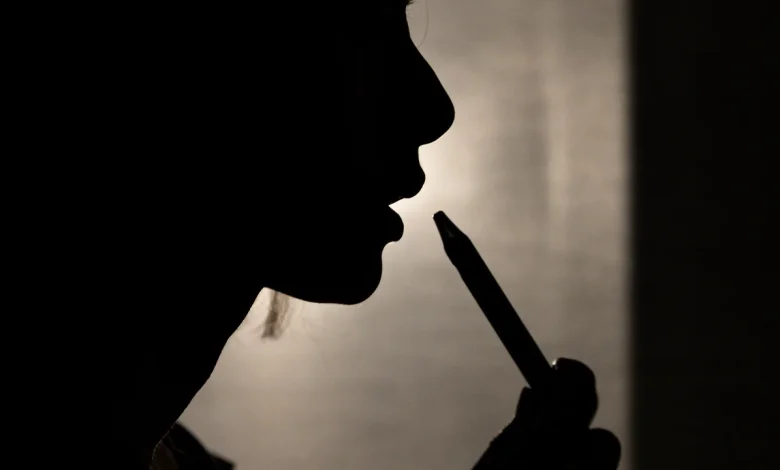Australian teenagers’ mental health problems linked to vaping, study finds
High school students with depression or poor wellbeing are twice as likely to have vaped at some time, survey of 5,000 shows

A recent study indicated that Australian high school pupils who exhibit signs of severe melancholy or poor wellbeing are twice as likely to have experimented with vaping.
Experts stated that the survey indicated a fifth of students in years 7 and 8 had moderate to severe signs of depression, highlighting the need for early intervention that addresses both mental health and vaping.
In 2023, as part of the University of Sydney’s Matilda Center’s OurFutures vaping prevention campaign, over 5,000 students between the ages of 12 and 14 were polled for the study.
Teens from 40 schools in Western Australia, Queensland, and New South Wales provided answers to questions about drug use and vaping, potential drug use in the future, and mental health, including signs of low wellbeing, stress, anxiety, and depression.
The findings, which were released in the Australian and New Zealand Journal of Psychiatry, revealed that one-third of the cohort had high levels of stress, one-fifth had high levels of anxiety, and one-third had low wellbeing.
Although there didn’t seem to be much of a correlation between anxiety levels and vaping use, students who reported moderate or high levels of stress were 74% or 64% more likely to have tried it than those who reported low levels of stress.
The close relationship between vaping and bad mental health became even more troubling as prevalence of the practice increased, according to co-author of the study Emily Stockings, an associate professor at the University of Sydney.
“It’s obvious that we have to do these two things together if we want to try to prevent vaping and improve mental health,” she stated.
Between 2017 and 2022–2023, the percentage of children in grades 7–12 who vaped in the previous month nearly doubled, while two-fifths of Australians in the 16–24 age range reported having a mental health issue in the previous year.
Michelle Jongenelis, an associate professor at the University of Melbourne, stated that the findings showed how crucial early and effective mental health support is for young teenagers.
The report found that 8% of students between the ages of 12 and 14 had ever tried vaping and 2% had done so during the previous month.
The countrywide Australian secondary students’ alcohol and drug study found that for the older 12- to 15-year-old age group, those percentages increased to almost 24% and 13%, respectively.
The average age of the students in the OurFutures study was 13, although research has shown that substance abuse and mental health problems start at age 14.
“When they are freshmen in high school, it’s a critical developmental period,” Jongenelis stated. “We need to be supporting them more effectively so that they don’t turn to vaping as a coping mechanism for their stress, anxiety, or depression.”
According to Stockings, there was a modest constraint to the study as only one out of every 20 pupils surveyed attended an educationally challenged school and public schools were not included in the survey.
“We were unable to visit government schools and possibly get firsthand information from the children who are the most marginalized, the most vulnerable, or the schools with the greatest issues,” Stockings stated.
The data was taken from a particular point in time, so while the study supported earlier research pointing to a link between nicotine use and mental health problems, it was unable to provide an explanation.
The study was the first in a series of surveys that will be answered by students in the OurFutures program after they have finished training classes that will help them understand and abstain from vaping, even if it did not explain the connection between mental health and vaping.




